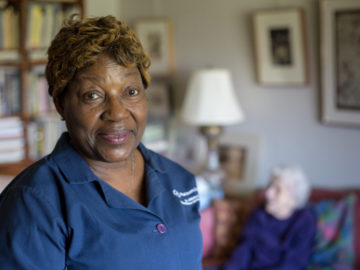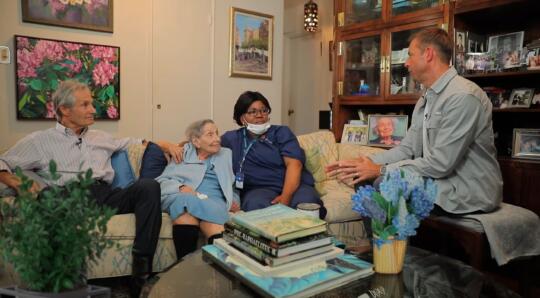Partners in Care HHAs Hone Preventive and Health Monitoring Skills to Reduce Hospitalizations

As value-based care models continue to take hold across the healthcare landscape, VNSNY is enlisting its Partners in Care home health aide (HHA) workforce to help ensure better outcomes for individuals enrolled in value-based managed long-term care (MLTC) plans—including CHOICE MLTC members. As part of this effort, Partners in Care HHAs are now being trained to monitor and address a wide range of medical warning signs, so they can help these plan members avoid preventable hospital admissions and emergency room visits.

“Providing daily care to MLTC plan members is a big part of what our HHAs do—and through this training, we’re empowering them to help these plan members manage their health at home more effectively,” says Barbara Maccaro, Director of Quality Management and Education at Partners in Care. “For example, our HHAs are learning to watch closely for signs and symptoms of worsening heart failure, development of infections and electrolyte imbalances, and to contact the MLTC plan’s nurse care manager promptly if a client’s symptoms escalate.”

The new training program is a response to the mandated shift of New York State’s MLTC plans to value-based payment models at the start of this year. Under the new models, Medicaid reimbursements are impacted by the quality of patient outcomes, rather than just the volume of care delivered. As a result, the ability of HHAs to serve as daily guardians of their clients’ health has become more vital than ever.
Partners in Care’s new value-based care training for its HHAs is being conducted in collaboration with the 1199 Service Employees International Union (SEIU) and the Continuing Care Leadership Coalition (CCLC), with funding support fromNew York State through a Long-Term Care Workforce Investment Organization (WIO) grant. Partners in Care is also planning workforce development initiatives to expand its HHA health coach training program, in which HHAs learn evidence-based methods and techniques such as motivational interviewing to help their clients pursue healthier lifestyles, and to enhance its basic HHA training.
“As the trend toward value-based payment models accelerates, HHAs are becoming an increasingly important part of our health care system,” adds Barbara. “These enhanced training programs will help them fulfill this critical role.”


